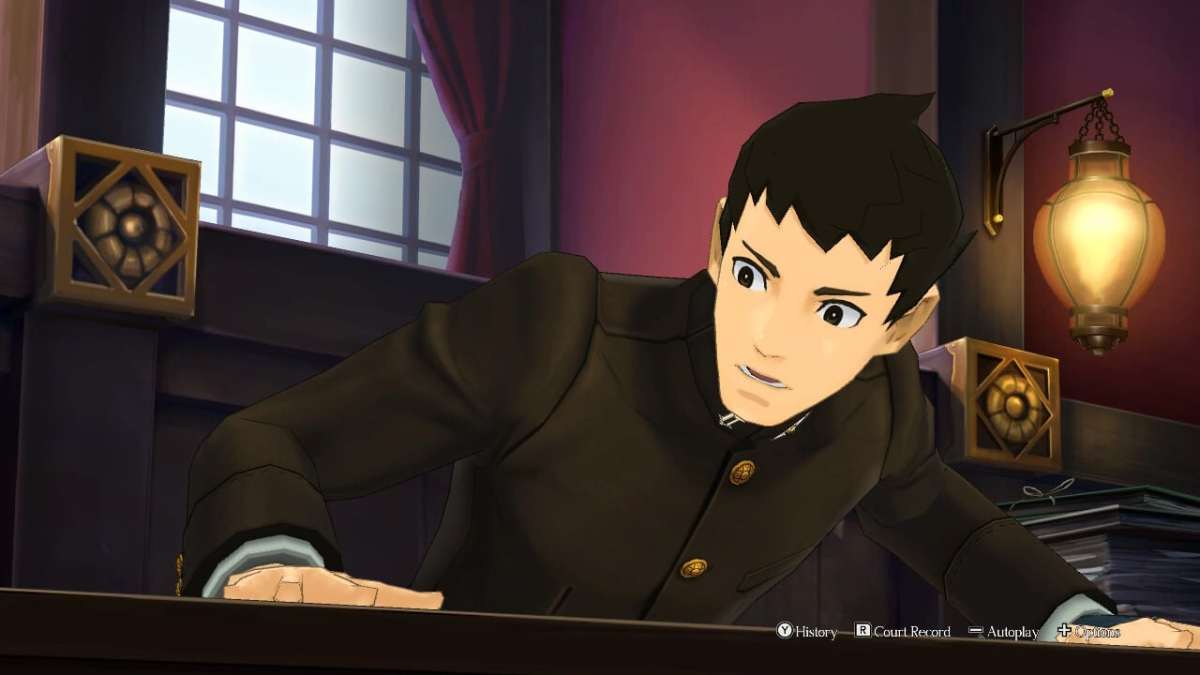Nintendo is known for many things — timeless characters, innovative consoles, and, of course, its aggressive, seemingly never-ending fight against piracy. On its website, Nintendo boasts, “Since 2008, Nintendo has supported over 600 actions in 16 countries, confiscating over a half million DS game copiers,” and “In 2009 alone, working with law enforcement agencies, Nintendo has pursued actions against over 80 factories in China producing (unlawful game-copying) devices.” In fact, Nintendo’s anti-piracy crusade starts well before the Nintendo DS. Back in 1994, Nintendo intercepted a shipment of bootleg Game Boy games, before ceremoniously destroying them with a steamroller (with the help of a creepy oversized Mario mascot-costume figure). A few years earlier, Nintendo had prevailed in a lawsuit against Tengen, a division of Atari, which circumvented Nintendo hardware locks and sold unlicensed games, including a Tetris copycat.
In more recent years, Nintendo’s battle over piracy has focused largely on “ROMs.” As explained by Wikipedia, “A ROM image … is a computer file which contains a copy of the data from a read-only memory chip, often from a video game cartridge.” In other words, a ROM file is a complete (and, ideally, perfect) copy of a video game, in digital representation. ROM files are one of the primary mechanisms of video game piracy, as they can easily be found, downloaded, and played for free.
There is no question that downloading a ROM without permission of the relevant rights holder is illegal. Such downloading obviously runs afoul of copyright law. Nintendo has attempted to curb this piracy by targeting websites and individuals who host and distribute these files. From a pure legal perspective, these cases aren’t terribly interesting as the law is well settled, and the deck is stacked strongly in favor of Nintendo.

Source: @gamegeschied via Video Game History Foundation
Nevertheless, these suits serve as interesting case studies in legal strategy. To understand why, we can look at Nintendo’s most recent suit, which was filed against Matthew Storman, the operator of the now-defunct site RomUniverse. Just a few weeks ago, Nintendo secured a permanent injunction against Storman that required him to destroy all unauthorized Nintendo ROMs in his possession, and it precludes him from copying, hosting, or distributing Nintendo ROMs. A few months prior in May 2021, the court had ordered Storman to pay over $2 million in damages for infringing Nintendo’s copyrights and trademarks.
Hail Hydra Digital Piracy
At first glance, one might think that Nintendo’s suit was a slam-dunk success. After all, Nintendo prevailed on all of its claims, won a multi-million dollar judgment, and has a court order on the books precluding any further infringing acts. But first impressions can be misleading. For one thing, ROM sites, like Hydra, cannot be defeated through a single action. “Cut off one head and two more shall take its place.” Sure, RomUniverse may be down, but what about romsgames.net, roms-download.com, emulatorgames.net, and so on? Would-be pirates looking to avoid the eShop still have plenty of options to choose from, meaning that Nintendo’s success in this case doesn’t amount to much.
The pyrrhic victory continues with respect to Nintendo’s damages award. It’s true that Storman was ordered to pay over $2 million in damages, but that doesn’t mean Nintendo will actually receive that money. In fact, earlier in the case, Storman was assigned a comparatively paltry $3,100 penalty for failing to preserve evidence. To satisfy that penalty, Storman agreed to pay $50 a month for 5 years. He didn’t even make his first payment. But even if Storman satisfied his $50 monthly obligation, it would take him over three millennia to pay back the full verdict (not counting interest). Considering that the market rate for Nintendo’s lawyers starts at several hundred dollars an hour, one would be hard-pressed to describe the verdict as a win for Nintendo.

And to be clear, this problem is not unique to Storman. By and large, piracy ROM sites are not operated by sophisticated or well-financed corporations or by overly wealthy individuals — they’re run by individuals who like video games. The problem is that statutory damages for copyright infringement are steep. For willful infringement, the Copyright Act allows for damages of up to $150,000 per copyrighted work. Since ROM sites host hundreds, or even thousands, of copyrighted works, damages awards could conceivably reach hundreds of millions of dollars. Even if courts were lenient and awarded damages of just 10% the statutory maximum, that would still amount to awards in excess of $10 million — far more than most individuals can expect to see in their lifetime. Thus, infringement verdicts are unlikely to ever pay off against ROM hosters.
Nintendo Isn’t Completely Dumb About Piracy and ROM Lawsuits
This is not to say that Nintendo’s suits are futile or without purpose. To the contrary, the suits send a clear message to would-be pirates: We will find you. We will get you. We will destroy you. The benefit of the suits, from Nintendo’s perspective, is their deterrent effect. Anyone thinking of hosting a ROM site or facilitating digital piracy may now have second thoughts and be dissuaded by the prospect of soul-crushing legal action.
Is the strategy effective? It’s hard to say. On one hand, one could argue that it’s not particularly effective, since countless ROM sites abound. On the other hand, we don’t know how many additional sites would exist if not for the deterrent effect. It’s also not clear how many times (if any) Nintendo has leveraged its lawsuits to persuade ROM operators to take down their sites without the need for legal action.
Even without those specific facts, most of which are either non-public or unknowable, my view is that it is in Nintendo’s interest to make an example out of one or two pirates, if only to put others on notice and persuade would-be pirates to stay away. Having said that, I do not think it would be beneficial for Nintendo to pursue many pirates, since the deterrent effect would have diminishing returns.

Pirates Have Lessons to Learn, Too
Nintendo’s suit against Storman is interesting not just because of what it means for Nintendo, but also because of the lessons it teaches to pirates. There are two key takeaways from the Storman suit. First and most obviously, don’t facilitate online piracy. Online piracy is illegal, so this should be a no-brainer. But even if one ignores legal obligations (and there is a strong argument that older, less accessible works should be freely available to the public), the cost-benefit analysis simply doesn’t add up.
ROM sites don’t make very much money. Indeed, many people turn to piracy to avoid paying for games. According to legal filings, Storman himself made only $800 a month from his website while it was active. It doesn’t take a mathematician to realize that the benefit of $800 a month doesn’t justify a risk of a $100 million adverse verdict.
The second lesson relates to how pirates should deal with Nintendo after being sued. Storman took the worst approach one could possibly take. Despite having zero legal training, Storman decided to represent himself in court. Along the way, he missed deadlines, broke rules regarding preservation of evidence, asserted nonexistent and incoherent legal defenses and counterclaims, and failed to gain any sort of traction on his defense. The outcome was a foregone conclusion. In fairness, the pitfalls of representing yourself in court are not limited to piracy cases. Indeed, one of my favorite websites is dedicated to pointing out the foolish and often hilarious actions of individuals who try to represent themselves in court.

For frame of reference, in 2018, Nintendo filed a similar suit against a husband-wife pair who ran LOVERoms.com. Unlike Storman, the defendants in that case retained a lawyer and brokered a settlement with Nintendo. While the terms of the settlement were not made public, there is a good chance that, as part of the settlement, Nintendo agreed not to pursue the $12+ million in damages it had sought in the case. As they say, a lawyer who represents himself has a fool for a client.
Conclusion
While it is obvious that blatant copyright infringement should be avoided, it is equally obvious that many people choose to ignore that message. And it’s not just the legally uninformed — even intellectual property lawyers have engaged in blatant infringement. In one of my favorite cases of all time, an IP lawyer was found liable for copyright infringement after copying almost all of another lawyer’s legal brief verbatim. The Nintendo lawsuits lack the delicious irony of the brief-writing copyright case, but the takeaway is largely the same: If you engage in blatant copyright infringement, don’t be surprised if you get caught.
In years past, Nintendo has made waves with new and innovative power-ups and costumes for its various characters. In Super Mario Bros. 3, Nintendo introduced the Frog Suit, the Hammer Suit, and the Tanooki Suit; in Metroid and Metroid Prime, Nintendo introduced the Varia Suit and the Phazon Suit; now, in the real world, Nintendo has introduced the most valuable suit of all — the Cautionary-Tail Suit.
